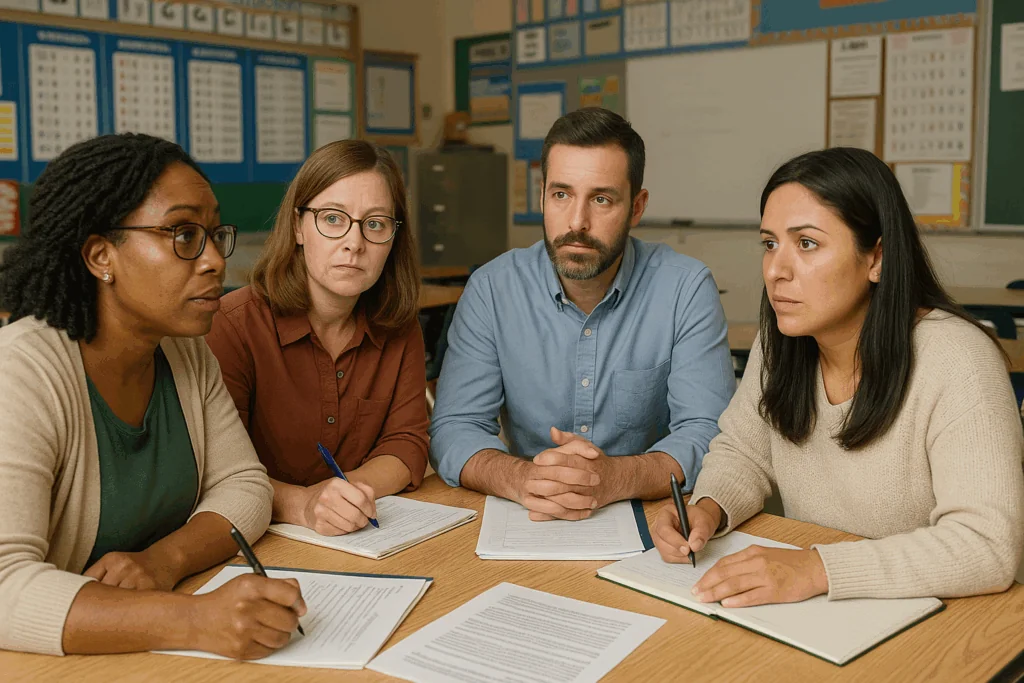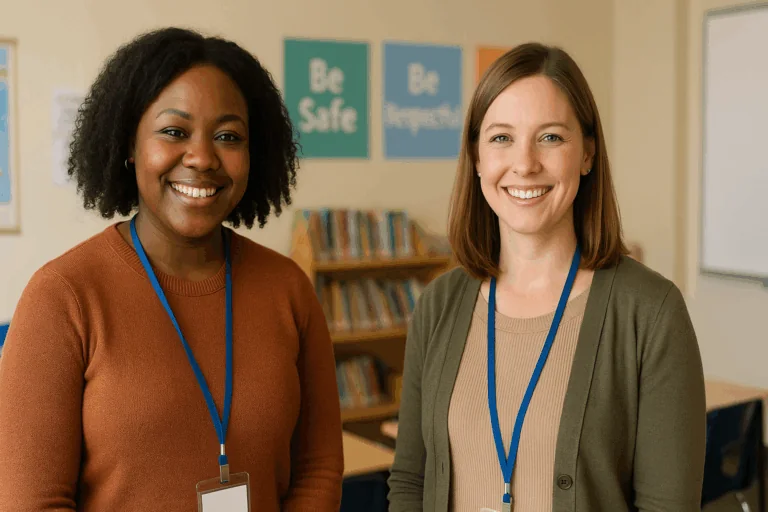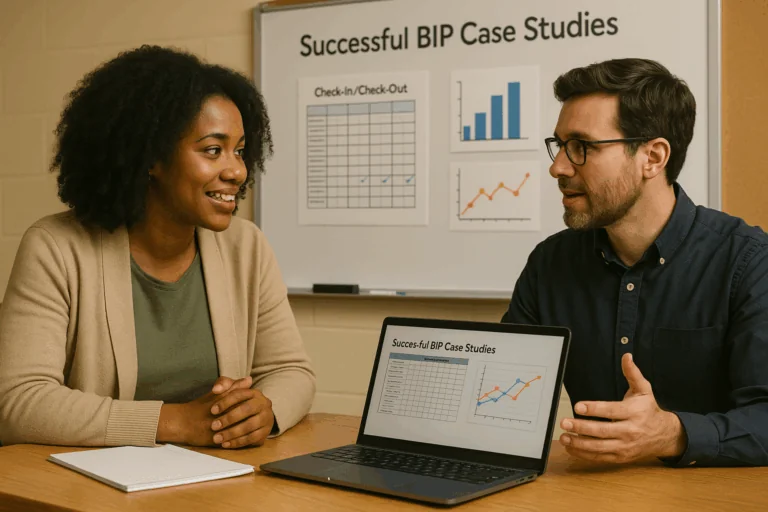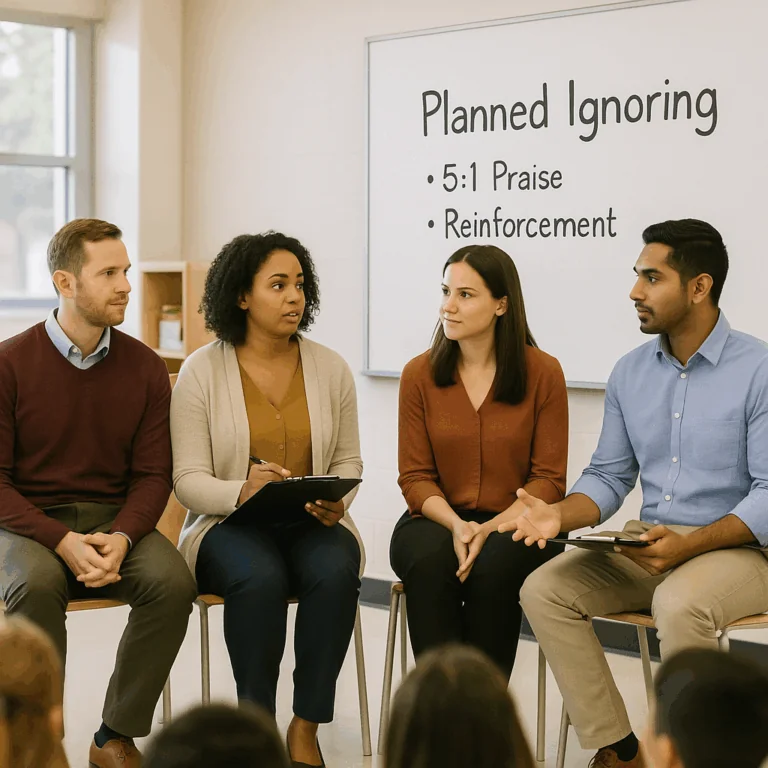In education, few questions generate as much discussion—and sometimes confusion—as:
“Who is best qualified to work with this student?”
When it comes to students with Individualized Education Programs (IEPs), the answer isn’t always straightforward. The truth is, it depends.
But here’s what we do know: With the right training, support, and mindset, most professionals in a public school setting can effectively support students with IEPs.
Let’s explore what “qualified” really means when it comes to IEP implementation, and why training and a plan is the key to unlocking student success across roles.
First: How IEP Teams Determine Services and Support
Before deciding who is best qualified to work with a student, we have to understand how the IEP is developed in the first place.
A student qualifies for special education services through a process that includes:
- Evaluation and assessments
- Input from families
- Collaboration with specialists (e.g., speech-language pathologists, occupational therapists, psychologists)
The team then determines the student’s eligibility under one of 13 disability categories outlined in the IDEA Sec. 300.8. From there, the IEP team creates a personalized plan that includes:
- The student’s disability category
- A description of the Least Restrictive Environment (LRE)
- Measurable goals
- Services and supports needed to access a Free Appropriate Public Education (FAPE)
Need clarity on IEP team roles? Check out our article: 5 Legally Required IEP Team Members
Once those pieces are in place, the practical question surfaces: Who will deliver these supports day-to-day?
So, Who Is Qualified?
The answer: It depends on the student’s unique needs and the type of support required.
Here’s a breakdown of common roles and the kinds of expertise they bring:
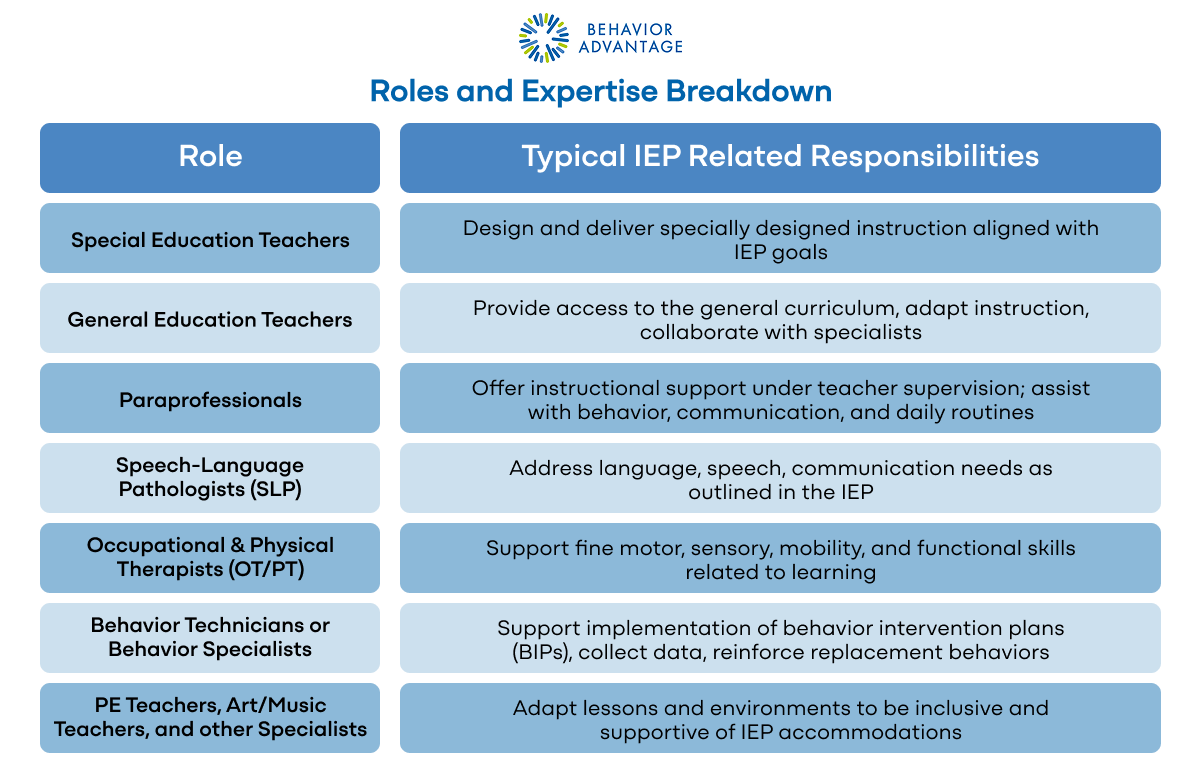
What matters most?
It’s not only about job titles. It’s about training and readiness.
Specially Designed Instruction vs. Supplementary Support
Some students will require specially designed instruction—adaptations that are not part of the general curriculum—which must be delivered by a licensed special education teacher.
Other students may benefit from supplementary aids and services, such as:
- Behavior support
- Preferential seating
- Visual schedules
- Communication devices
These supports can often be implemented by a range of staff, provided they are properly trained.
For example:
- A paraprofessional trained in prompting strategies and behavior reinforcement may help a student stay engaged in a general education classroom.
- A general education teacher with the right training may adapt lessons to provide multiple ways for students to access the content and participate meaningfully.
Need quick, effective behavior strategies to support your team? Grab this free Behavior Advantage resource 20 Essential Behavior Intervention Strategies
When Behavior Is a Barrier
For students who struggle behaviorally, additional tools may be needed, including:
- A Functional Behavior Assessment (FBA) – This is how we figure out what’s really driving a student’s behavior. It involves looking at patterns—when the behavior happens, what triggers it, and what the student might be trying to get or avoid. It helps us move from guessing to understanding.
- A Behavior Intervention Plan (BIP) – Once we know the “why” behind the behavior, the BIP maps out a plan to help the student use a more appropriate behavior instead. It includes simple, practical strategies to prevent the behavior, teach new skills, and consistently reinforce what’s working.
Implementing a BIP isn’t limited to just behavior specialists. Teachers, paraprofessionals, and even bus drivers or cafeteria staff can play an essential role—as long as they understand how and why the plan works.
While the needs of some students may require additional training and expertise to conduct an appropriate assessment, writing solid FBAs and BIPs doesn’t have to be overwhelming.
Behavior Advantage has free tools to make it easier—check out our Simple FBA Template and How to Write a BIP that Works + Template.
So, Can Anyone Work with a Student with an IEP?
Yes—with the right training.
When we say “qualified,” we don’t mean “perfect.”
We mean:
- Trained in the student’s specific needs – Whether it’s communication, behavior, academics, or sensory support, effective team members take time to understand the unique strategies that help a student thrive.
- Open to collaboration – No one does this work alone. The best support happens when educators, specialists, and families work together and learn from one another.
- Willing to learn and adjust – What works for one student may not work for another—and what worked yesterday might not work today. Flexibility is part of the job.
- Committed to creating a safe, inclusive space – Students succeed when they feel seen, supported, and safe. That starts with adults who are intentional about building trust and belonging.
The most effective IEP teams are those where:
- Everyone shares responsibility for the student’s success – From the classroom teacher to the bus driver, every adult plays a role in helping the student meet their goals.
- Support staff are respected as critical team members – Paraprofessionals, aides, and related service providers bring valuable insight and consistency to the student’s day-to-day experience.
- Training is accessible and ongoing, not a one-time checkbox – Supporting students with IEPs requires continuous growth. When schools invest in meaningful, practical training, everyone benefits—especially the student.
It’s not about fitting the student into a system—it’s about equipping the adults around them with the tools, training, and connection to make the system work for the student.
Final Thoughts: Training Over Title
When placement and programming decisions are made, they should reflect not just the student’s disability label but their strengths, interests, and real-world support needs.
The question isn’t just, “Who is allowed to work with this student?”
It’s: Who is prepared, supported, and trained to help this student thrive?
And that can be just about anyone—with the right mindset, skillset, and heart.
Ready to boost your team’s confidence in supporting IEPs? Explore Behavior Advantage’s tools, strategies, and built-in training.


